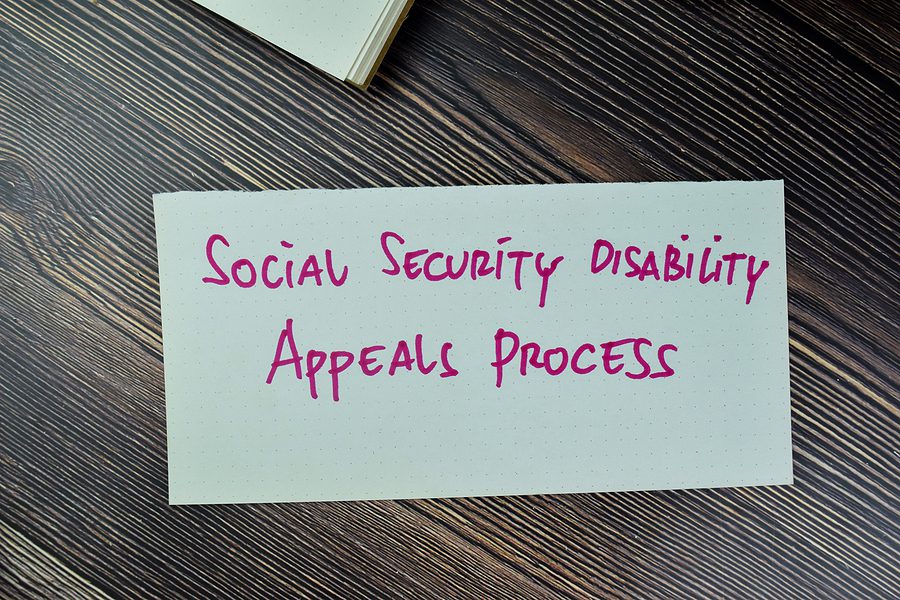
Do You Need a Lawyer for Your SSDI Appeal?
You know you are disabled and can’t work. Your employer knows you are disabled and can’t work. Your doctor knows you are disabled and can’t work. Yet somehow, when you applied for Social Security Disability Insurance (“SSDI”), you were denied.
You believe you qualify for disability, but how can you convince the decision makers? Or does your denial mean that you are destined to continue to struggle to work to make ends meet? As you start the SSDI appeals process, you may wonder if you should get help to ensure that you are successful in proving your disability case. You definitely should!
Understanding Your Denial
If you, your doctor, and your employer all believe that you are disabled and cannot work, why did the Social Security Administration disagree? While it seems like the process should be very straightforward, the reality is that it is common to be denied when you apply for SSDI (Step 1- Intake) and again at Reconsideration (Step 2).
In most cases, the denial comes from insufficient evidence on the severity of your disability and how it impacts your ability to work. The SSA requires extensive medical documentation of your disability. You may also be denied if the SSA feels there are gaps in your medical care or that you’ve been neglecting the recommended treatment for your disability, arguing that they can’t determine if you are disabled enough not to work if you haven’t followed through with right treatments.
Some denials are from your work history and financial picture. If you haven’t earned enough work credits (ie. are not “insured”), or your household income is too high (for SSI applications), you may not meet the qualifications.

Understanding the Appeal Process
Once your initial application has been denied, you have 60 days to appeal the decision, either online or in writing. If you miss this deadline, you lose your right to appeal, so it’s important to make sure you start the process right after receiving the initial decision.
The first stage of the appeals process is the Reconsideration. Someone who did not take part in the initial determination of your application will do a complete review of your case, which includes both the evidence you initially submitted as well as any new evidence you provide. The SSA will likely ask additional questions about your medical condition and may request additional medical records, testing, or a mental health evaluation.
If you are denied again at the Reconsideration stage, you can appeal again and request an Administrative Law Judge hearing. During this hearing, you will testify under oath, and a vocational expert will also testify, based on the information you have provided from your work history. The vocational expert will offer their opinion of if there are any relevant work opportunities still available to you.
The Administrative Law Judge will review the testimony as well as the information you provided in your initial application, first appeal, and any additional information you have provided.
If you are still denied, you can have your case reviewed by the Appeals Council, who will review the hearing, the written decision of the Administrative Law Judge, and everything you have provided to this point.
The final step in the review process is a Federal court appeal. The Federal Court does not weigh evidence and make a decision of whether they agree with the evidence. Instead, the Federal Court appeal is there to make sure you received the proper due process during your Social Security hearing and review.
This process can be long, but seeing it through may result in a lump sum of back benefits being awarded.
Having a Lawyer Can Speed Up the Approval Process
While most applicants are able to do the initial application independently, once you’ve been denied, having an experienced SSDI attorney may improve your chances of a favorable outcome. There are several reasons for this.
- An attorney can ensure you have enough documentation.
You need more evidence than you may think. Your attorney will determine what evidence is necessary to make your case stronger and will help you gather what you need.
- Your attorney can ensure you meet all deadlines.
Missing a deadline can put a quick stop to the appeals process. An attorney will make sure that everything is submitted well within the window for appeal.
- Your attorney can act as your spokesperson.
When you hire an attorney, they can speak on your behalf and present your case. If your appeal reaches the hearing stage, this can be critical to your success.
Your lawyer can help strengthen your SSDI case, making sure that you have provided every possible detail that can help prove your case.
Can You Afford a Lawyer?
If you are applying for SSDI due to financial stress due to an inability to work, can you afford an attorney? Many SSDI applicants who feel that a lawyer is out of reach put themselves in an even more precarious position by navigating the appeals process on their own, but this doesn’t need to be the case. Some attorneys who work with SSDI appeals not only offer free consultations, but work on a contingency basis. Hiring an attorney on contingency means that you typically won’t need to pay any upfront fees, and you may not be responsible for any payment unless your appeal is successful. If your appeal is successful, then your attorney may take their fee as a percentage of what you receive from your benefits.
Applying for SSDI can be a frustrating and overwhelming process, especially when you are already struggling with your inability to work and provide, and a denial can feel like a big setback. Having an attorney isn’t required for your SSDI appeal, but if you opt to use a lawyer who understands and is experienced in the process, then you may improve your chances of a successful appeal.
If you qualify for SSDI but are struggling through an appeals process, contact Arthur Law Firm (419) 782-9881 right away for a free consultation.